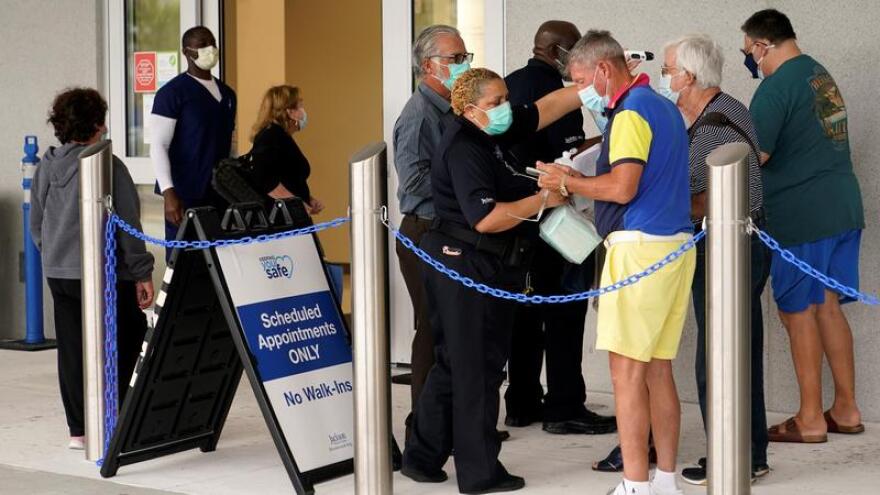With so much riding on the successful distribution of the coronavirus vaccine, both the Centers for Disease Control and Prevention and the Florida Department of Health say their policy is to do everything possible to prevent any vaccine doses from going to waste. That sometimes means vaccinating people who don’t meet current eligibility requirements.
But a lack of clarity about that process has left many Floridians confused, and data remains scarce around who is vaccinated in this way.
Jacksonville software engineer Andrew Williams, 31, found out through a family member that some vaccination sites were distributing extra vaccine doses at the end of the day. So in January, along with his aunt and his parents, Williams stood in line at the Prime Osborn vaccination site - which has since closed as a vaccination site - to see if he could get a shot, too.
“There was already a line formed, of about 35, 40 people in front of me, and we just kind of waited for hours out in the rain,” Williams said. “And at the very end of the day they said they were going to start letting people in from the line, which is I guess the line of ineligible individuals.”
My wife and I waited in a line with about 70 people in the rain at Prime Osborn for about 2 hours and everyone got vaccinated that day. Find a site, find out when the last app is, show up an hour early, and be willing to wait patiently and politely and you might get lucky😃😷
— Eric J Newhart (@Eric_Newhart) February 23, 2021
Both The Pfizer-BioNtech and the Moderna vaccines need to be kept at a certain temperature. Once they’re thawed, the Moderna vaccine is only good for 12 hours, and the Pfizer for just six. With multiple doses contained in each vial, health care providers can struggle to use up each dose contained in the vial before time runs out.
Federal guidance has been to vaccinate anyone who is around rather than waste doses. “It’s more important to get people vaccinated than to perfectly march though each prioritized group,” former Health and Human Services secretary Alex Azar said at a January press briefing.
In a statement to WJCT News Friday, a spokesperson for the CDC said, “If there is excess vaccine, clinic staff should do everything possible to avoid wasting the dose. If vaccine wastage occurs, it should be reported into CDC’s Vaccine Tracking System (VTrckS).”
VTrckS data is not currently available to the public, so it’s not clear how many doses of the vaccine have been wasted to date.
WJCT News reached out to multiple government agencies this week, including the state’s Department of Health and the Department of Emergency Management.
At the time of this story’s publication, none have provided us with an official policy for who excess shots should go to, or how those decisions are made. If any are received, this story will be updated.
“I feel a little bit guilty, in the sense that I’m like a 31-year-old, and people look at me like, why are you vaccinated already when other people can't be,” Williams said. “But at the same time, I think it’s important that we get out as many doses as we can and not waste anything.”
Williams added that he wished there was some way for people like his parents, who were just months shy of qualifying for the vaccine by age, to be next in line for those extra doses.
“Maybe there’s a way we could coordinate that better,” he said.
Contact Sydney Boles at sboles@wjct.org, or on Twitter at @sydneyboles.



